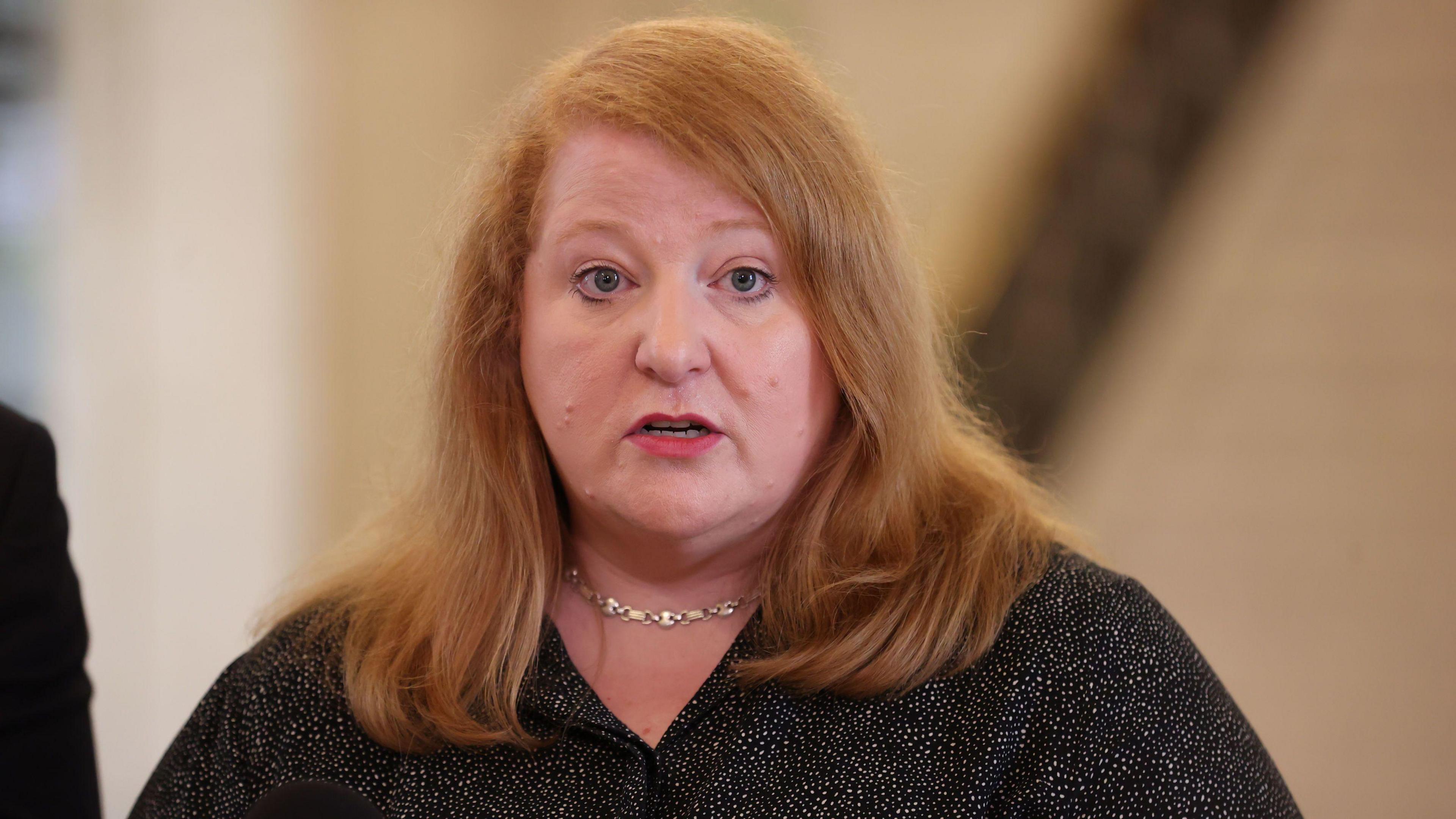Secret surveillance created 'chill factor', court told
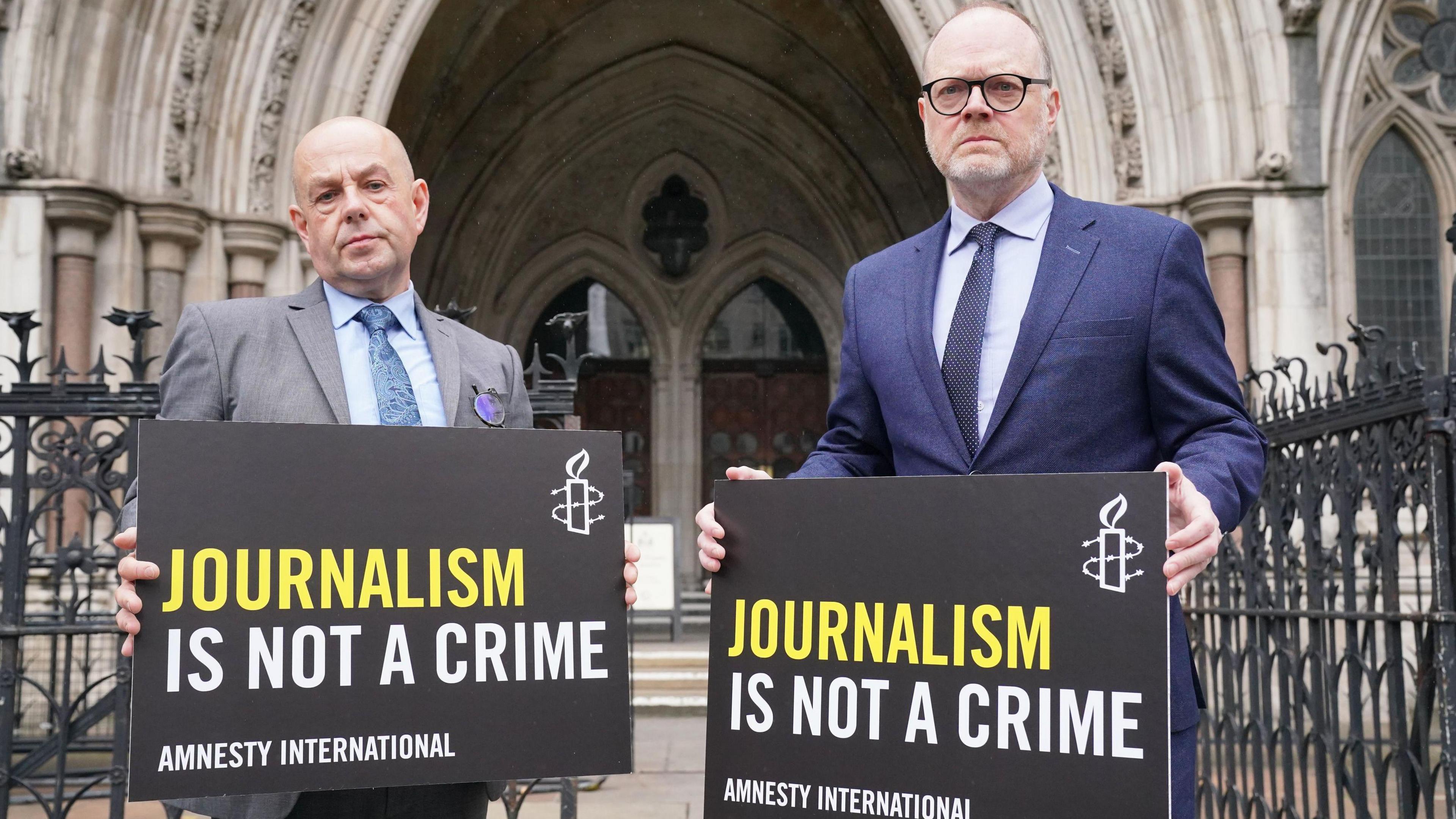
Journalists Barry McCaffrey (left) and Trevor Birney have brought the case after their homes and offices were raided in 2018
- Published
Secret police surveillance of journalists in Northern Ireland would have a “chill effect” on people attempting to expose wrongdoing in the future, a tribunal has been told.
The Investigatory Powers Tribunal (IPT) is considering whether the Police Service of Northern Ireland (PSNI) acted illegally by obtaining journalists' communications data to identify their sources.
The case has been brought by Barry McCaffrey and Trevor Birney, who were arrested in 2018 while working on a documentary about the Loughinisland killings.
Six Catholic men were shot dead by loyalist gunmen as they watched a World Cup match in the County Down village in 1994.
The police also carried out a covert surveillance operation of an official working for the Police Ombudsman’s Office who they suspected had given secret files to the journalists which appeared in the film.
Mr Birney’s barrister, Stephen Toal KC, said the work of investigative journalists was to shine a light to expose wrongdoing.
“The concerted effort to harvest the data of Trevor Birney and his sources will increase the chill effect on future sources”, he said.
Sources were the “lifeblood” of his business which had been affected by the actions of the police.
“In order for press freedom to win, the police must lose this case”, Mr Toal concluded.
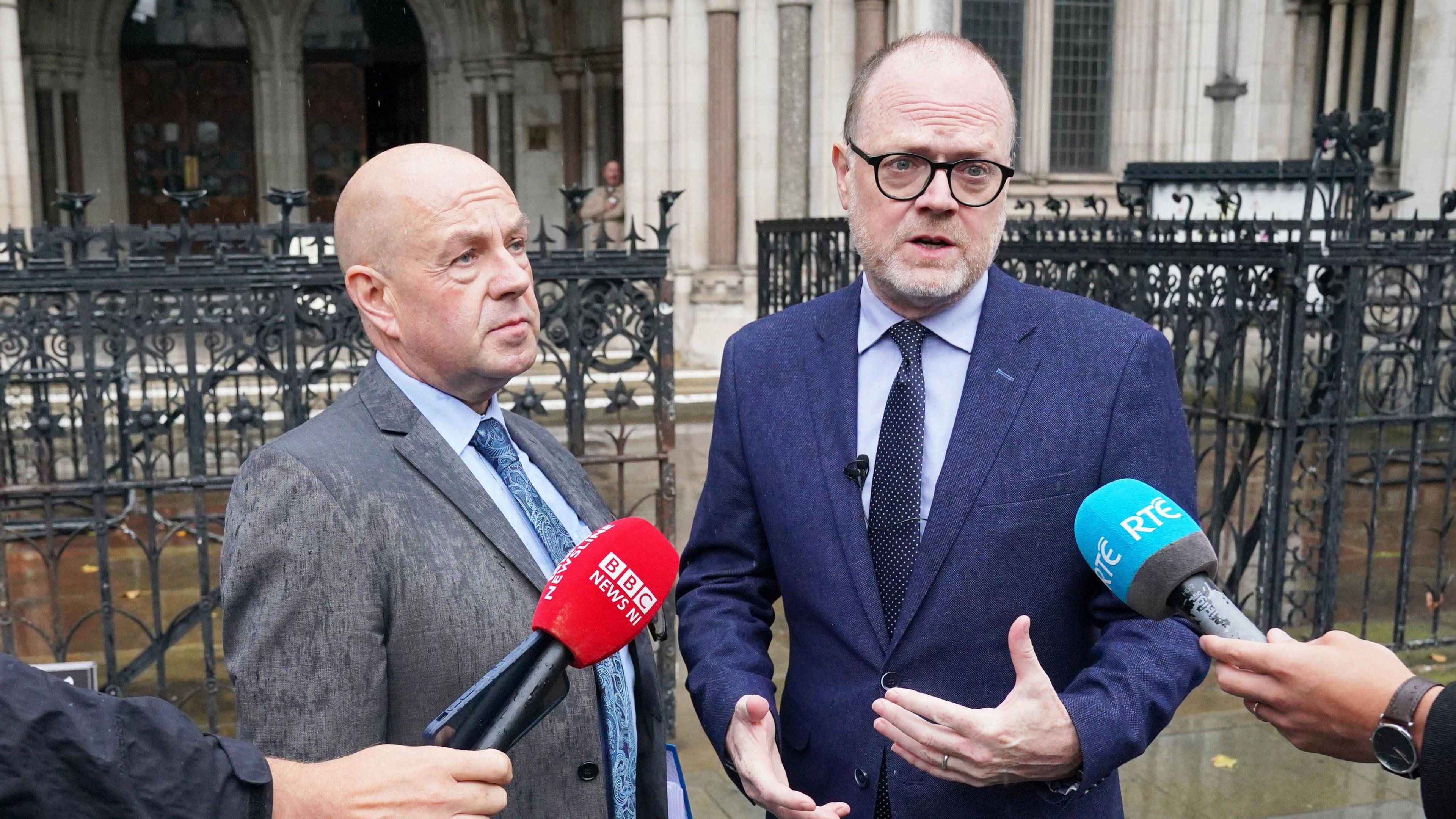
The journalists worked on a documentary which investigated collusion in the 1994 Loughinisland killings
During the IPT inquiry, it emerged Mr McCaffrey’s phone data had been obtained by the Metropolitan Police during a previous police operation in 2013.
The tribunal has been told it is accepted by both the Metropolitan Police and the PSNI that this was unlawful.
They failed to consider whether the action was necessary and proportionate and that there was an overriding justification in the public interest.
Journalists' numbers checked
Ben Jaffey KC said the legal protections for journalists and their sources was not lost, even if the source was acting wrongfully or even criminally.
Because the police had acted secretly, he said the safeguards to protect sources had been bypassed and the journalists had been unable to challenge the police actions.
He argued that it was insufficient for the tribunal to simply rule that there had been a breach and that an award of damages would be appropriate.
The lawyer said during the tribunal that the PSNI had misled journalists about what was going on and had argued that no covert powers had been used.
Mr Jaffey said the purpose of the surveillance operation had been to see if the journalists met their source.
“You can’t evade the legislation when you target the source and not the journalists,” he said.
It also emerged the PSNI had run what it called a “defensive operation” - running checks on journalists’ phone numbers every six months.
He said journalists would have been unaware that their numbers had been added to a database of searches after they had contacted the press office.
Mr Jaffey said this was another example of a covert operation.
He said the officer who led the investigation, Darren Ellis, had been motivated by “animus and unjustified antipathy” towards the journalists and the documentary.
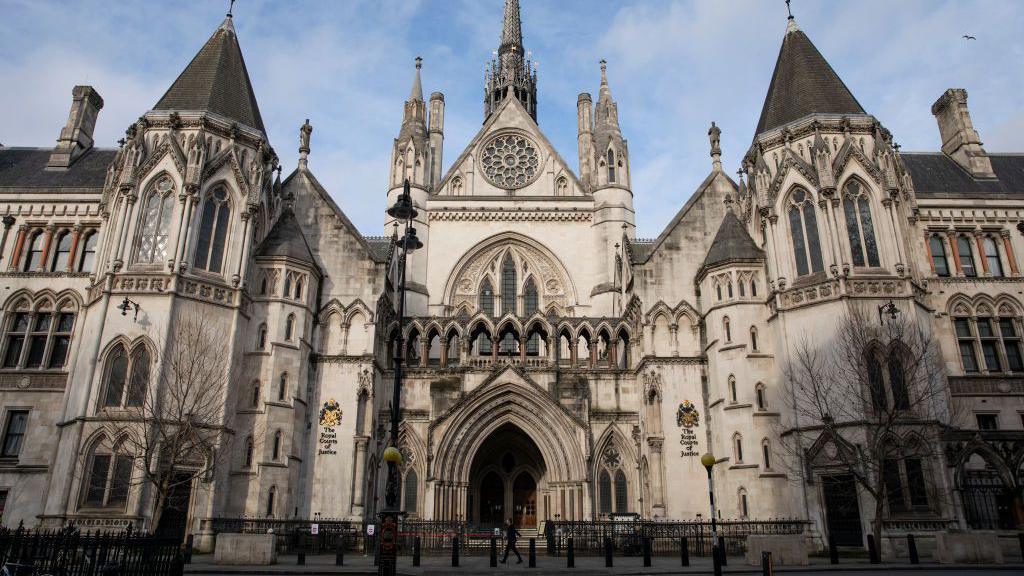
The four-day hearing is taking place at the Royal Courts of Justice in London
The PSNI’s barrister Cathryn McGahey KC said while the need to protect journalists' sources was accepted, that protection was “not absolute”.
She said there was a “huge public interest in identifying a public servant who leaked material and to deter others from doing so”.
A balance had to be struck between two very strong competing interests and “the difficulty of getting that right is the subject of these proceedings," she added.
The PSNI accepted it had acted unlawfully in 2013 and would make an undertaking to destroy the material obtained from Mr McCaffrey.
As the PSNI had acted in good faith and implemented the code of practice as it was understood at the time, she argued Mr McCaffrey should not be awarded any damages.
She described some of the language used by Mr Ellis in his evidence as “clearly inappropriate and intemperate” and said he had attributed a number of “highly inappropriate remarks to a senior officer”.
She said those remarks would be “inconsistent in terms of an email the officer sent to Mr Ellis after remarks he made along similar lines in which the officer condemned his criticism of the Northern Ireland judiciary”.
She accepted that during his investigation Mr Ellis was not “acting in a frolic of his own” and that the PSNI took responsibility for actions he carried out in performing his police duties.
WhatsApp firearm message
Proceedings took a surreal turn when it was revealed Mr Ellis had claimed in a closed session that one of the journalists' lawyers had sought to acquire a firearm.
A WhatsApp message between Mr McCaffrey and solicitor Niall Murphy was shown to the court which asked: "Is anyone interested in a 9mm, 2 clips and 20 shells?”
The message, sent in 2017, contained a picture of a 9mm spanner, two paper clips and 20 seashells.
Mr Jaffey stated: “Mr McCaffrey says any criminal offence committed was his sense of humour rather than anything else”.
However, he said the allegation provided “further evidence of the entirely zealous and one-sided investigation” and the “totally unjustified criticism of anyone who stood in Mr Ellis’ way”.
- Published2 October 2024
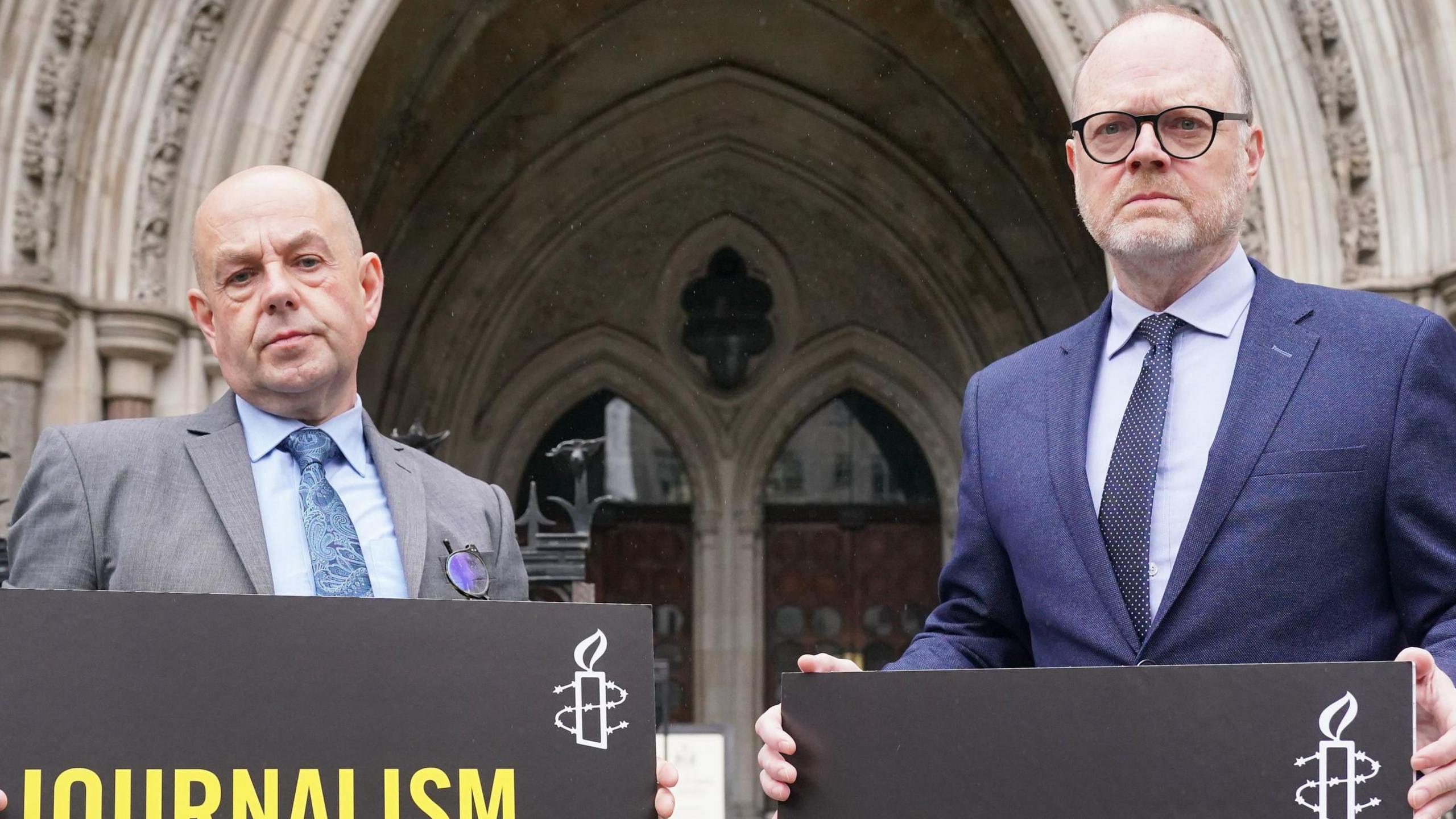
- Published1 October 2024
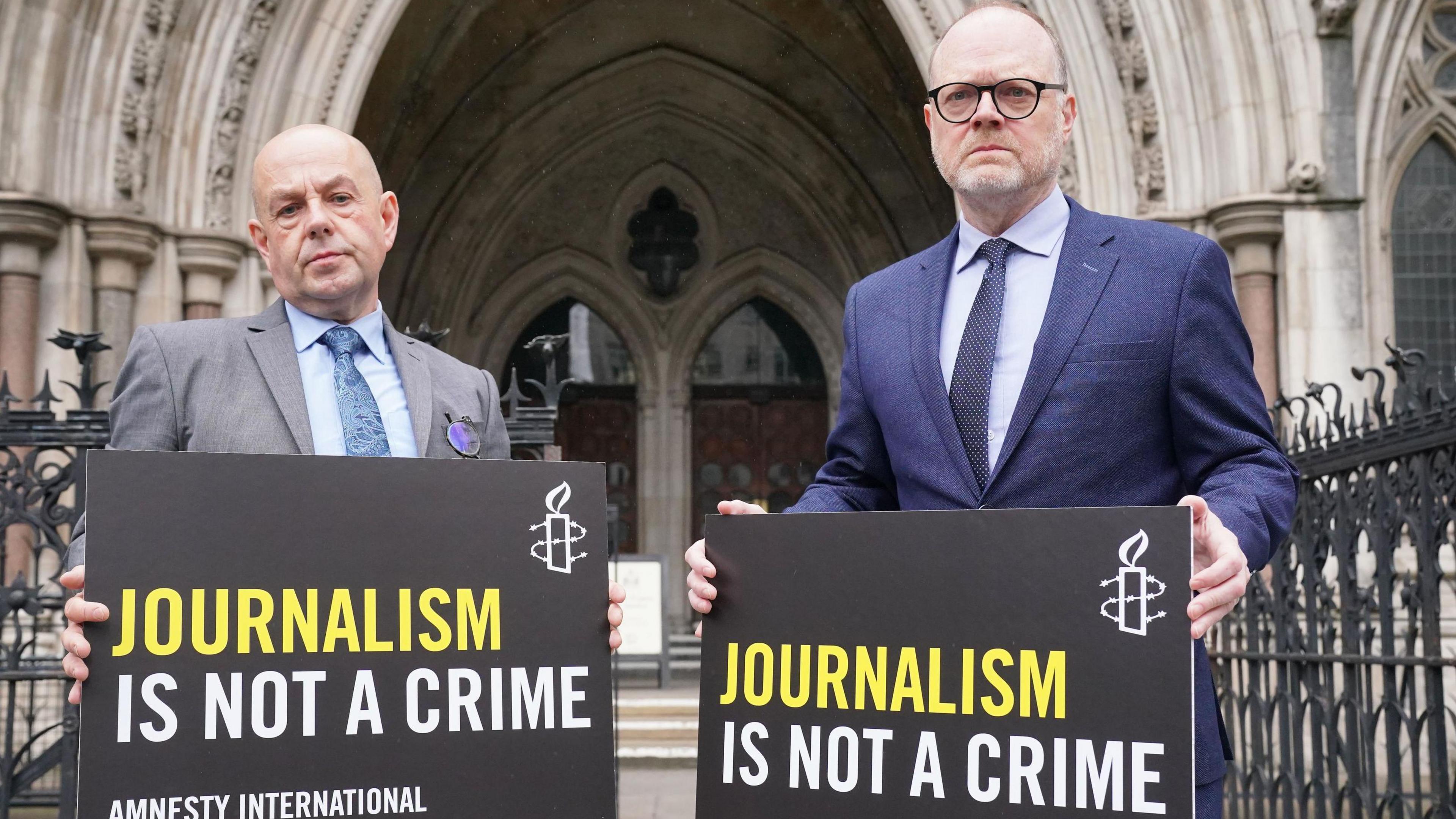
- Published4 June 2024
